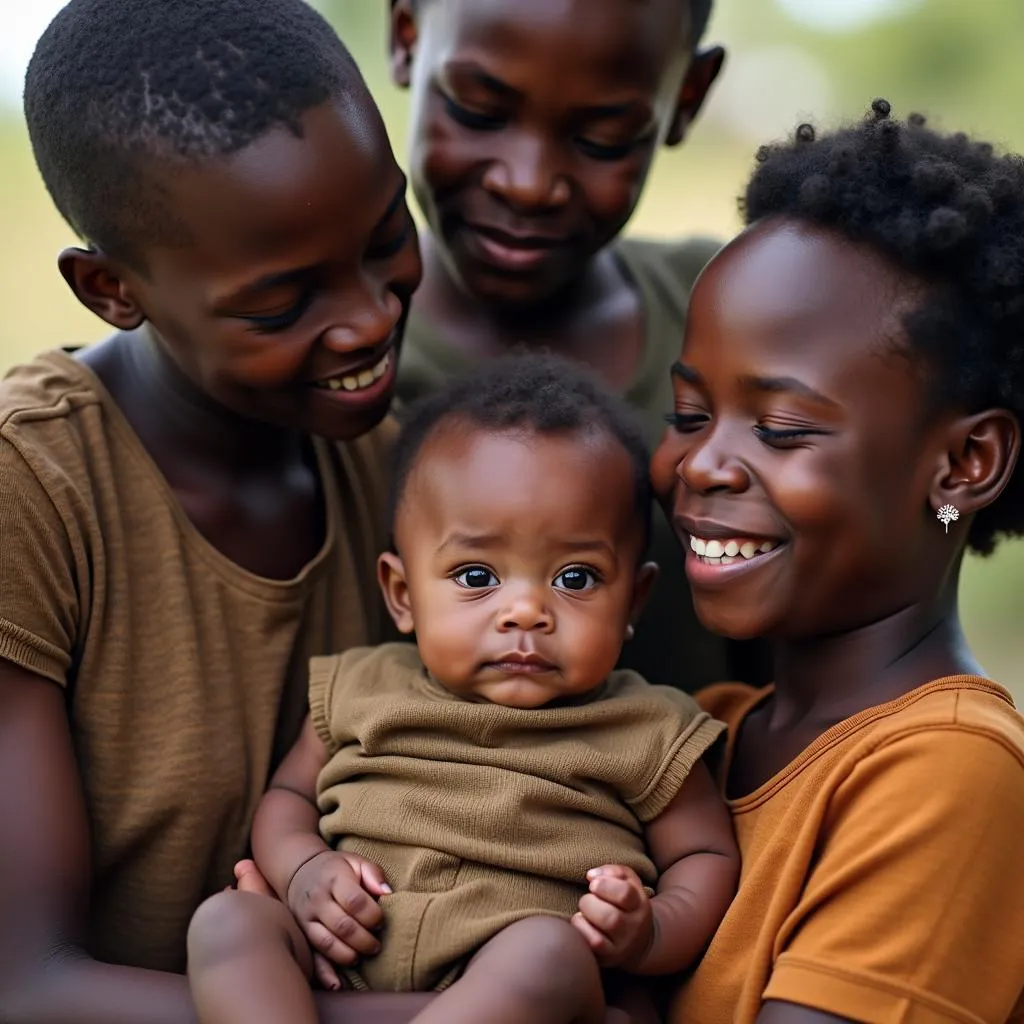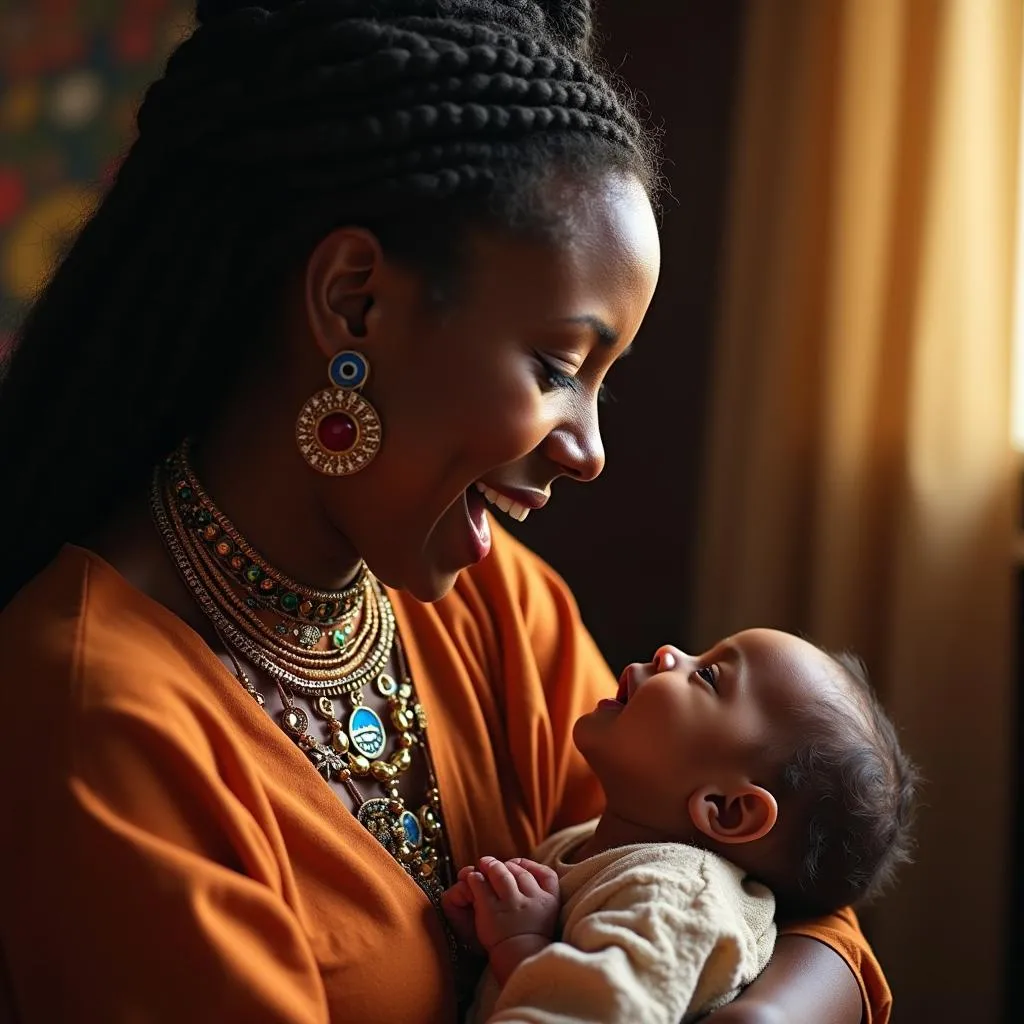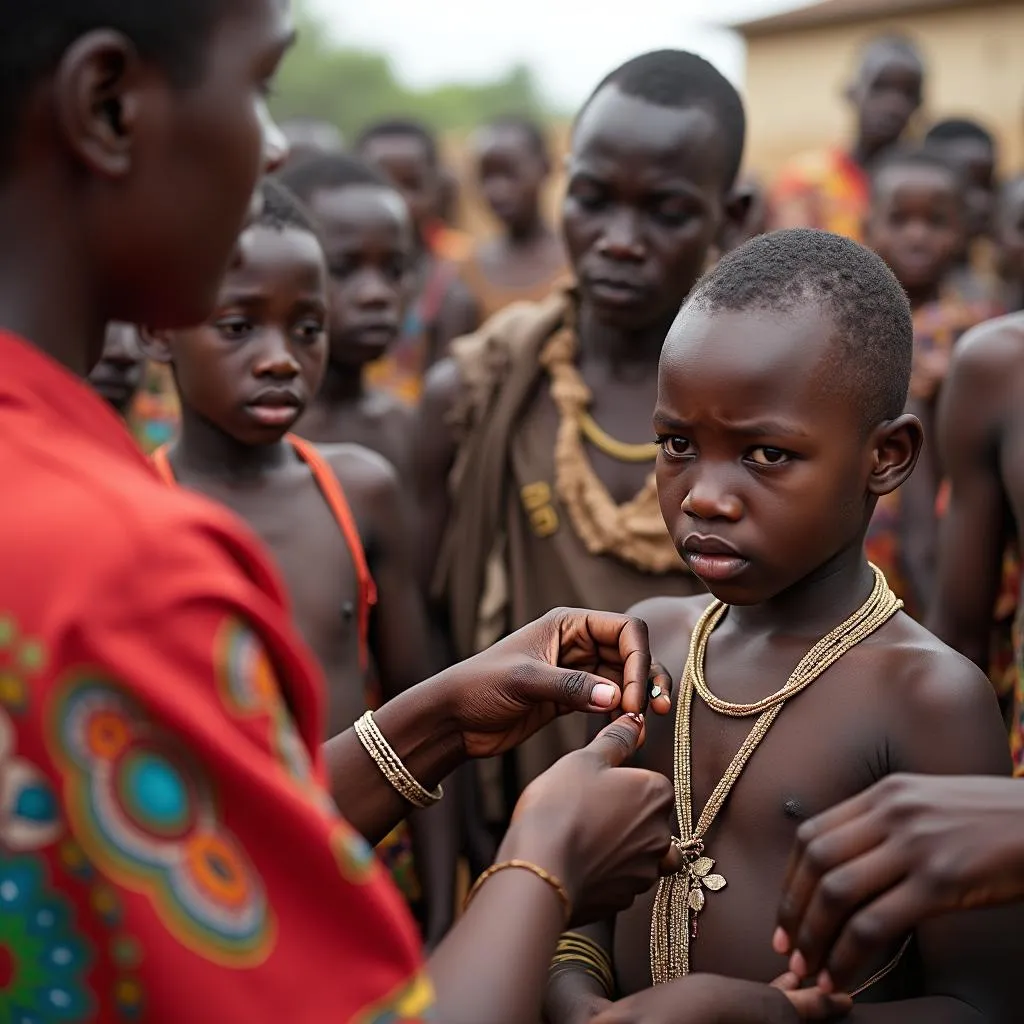Exploring the Wonder of African Infant Traditions
The arrival of a new life is a joyous occasion celebrated across the globe, and Africa is no exception. African cultures hold deep reverence for infants, embracing them with unique traditions and practices that span generations. This article will delve into the captivating world of African Infant traditions, uncovering the diverse practices and beliefs that shape the lives of newborns across the continent.
The Importance of Family and Community
From the moment an African infant enters the world, they are enveloped in a web of love and support. Family plays a central role in an infant’s upbringing, with extended kin often residing in close proximity, providing invaluable assistance to new parents. This strong sense of community fosters a nurturing environment where infants are cherished and cared for by a collective.
The Role of Elders
Elders are revered for their wisdom and knowledge, acting as guides and mentors to young families. Their expertise in traditional practices, including childbirth, infant care, and the passing down of cultural values, is highly respected.
“Our elders are the keepers of our traditions, reminding us of the importance of honoring our ancestors and guiding us in the right path,” shares Mama Fatoumata, a respected elder in a Malian village.
Naming Ceremonies and the Gift of Identity
Naming ceremonies are a significant milestone in the life of an African infant, representing a formal welcome into the community. The chosen name carries profound meaning, often reflecting family lineage, ancestral connections, or auspicious qualities. These ceremonies are a vibrant celebration, typically involving music, dance, and the participation of the entire community.
Connecting to Ancestors
Through naming ceremonies, infants are symbolically connected to their ancestors, receiving blessings and guidance from the spirit world. The chosen name is often linked to a particular ancestor, signifying a continuity of lineage and family history.
Circumcision and Rituals of Passage
Circumcision is a traditional practice in many African cultures, marking the transition from childhood to adulthood. In some communities, circumcision is performed on infants, while in others, it takes place during adolescence. This ritualistic act signifies a rite of passage, marking a shift in social roles and responsibilities.
Strengthening Identity and Belonging
Circumcision ceremonies are often accompanied by celebrations and rituals that reinforce a sense of identity and belonging within the community. They serve as a means of reaffirming cultural values and traditions.
The Power of Music and Storytelling
Music plays a vital role in the lives of African infants, with lullabies and traditional songs used to soothe, entertain, and educate. These melodies carry ancient wisdom and cultural knowledge, passed down through generations.
The Lullaby’s Magic
The rhythm and melodies of African lullabies are not merely for entertainment. These musical traditions are believed to have a calming effect on infants, promoting sleep and a sense of security.
“Our lullabies are more than just songs,” explains Amina, a Tanzanian mother. “They are a way to connect with our ancestors, share our wisdom, and nurture our children’s souls.”
The Significance of Food and Nutrition
African cultures place great emphasis on the importance of food for infant development. Breastfeeding is highly valued, with mothers often providing sustenance and nourishment for their infants for extended periods.
Traditional Foods for Healthy Growth
Many African societies have developed unique culinary traditions that cater to the nutritional needs of infants. These foods often include locally sourced ingredients like legumes, grains, and fruits, providing a balance of essential nutrients.
Embracing Diversity and Cultural Nuances
The traditions surrounding African infants vary greatly across the continent, influenced by diverse ethnicities, languages, and geographic locations. This diversity makes it crucial to approach the study of African infant traditions with an open mind and a respect for cultural nuances.
Looking Ahead: Preserving Tradition for Future Generations
The traditions surrounding African infants are not static relics of the past. They are vibrant and dynamic practices that continue to evolve and adapt to modern times. It is vital to ensure that these traditions are preserved and passed down to future generations, safeguarding the rich cultural heritage of Africa.
 Family plays a central role in the upbringing of an African infant, with extended kin often residing in close proximity, providing invaluable assistance to new parents.
Family plays a central role in the upbringing of an African infant, with extended kin often residing in close proximity, providing invaluable assistance to new parents.
FAQ
1. What is the typical duration of breastfeeding in African cultures?
In many African cultures, breastfeeding is practiced for extended periods, often lasting two years or longer.
2. Are there specific rituals associated with naming ceremonies?
Naming ceremonies are often accompanied by elaborate rituals, including offerings to ancestors, prayers for blessings, and special foods.
3. What are some common African infant lullabies?
Popular African infant lullabies include “Wimbo wa Mama” from Tanzania and “Lullaby of the African Cradle” from Ghana.
4. How can I learn more about African infant traditions?
You can explore books, documentaries, and online resources to learn more about African infant traditions.
5. Are there any organizations dedicated to preserving African traditions?
Yes, there are several organizations dedicated to preserving African traditions, including the African Cultural Center in Lagos, Nigeria, and the Pan-African Heritage Foundation in Washington, D.C.
 Music plays a vital role in the lives of African infants, with lullabies and traditional songs used to soothe, entertain, and educate.
Music plays a vital role in the lives of African infants, with lullabies and traditional songs used to soothe, entertain, and educate.
 Circumcision is a traditional practice in many African cultures, marking the transition from childhood to adulthood.
Circumcision is a traditional practice in many African cultures, marking the transition from childhood to adulthood.
When you need assistance, feel free to contact us by phone at +255768904061, email at [email protected], or visit us at Mbarali DC Mawindi, Kangaga, Tanzania. Our team is available 24/7 to help you.

